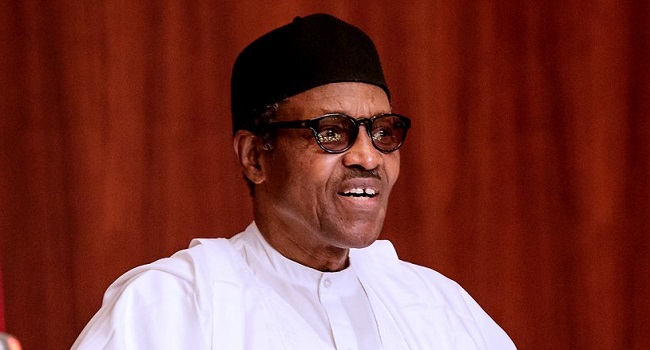Business
NEW FISCAL LAW: Private sector condemns govt’s plan to raise N2.1tn VAT from Nigerians

The signing of the Finance Bill into law by President Muhammadu Buhari on Monday has begun to have sweeping reverberations in the public space as the Organised Private Sector faulted the increase of the Value Added Tax (VAT) from 5% to 7.5%.
Government has been worrisomely aggressive in its revenue generation drive in recent times, which has made it resolve to amass a staggering N2.08 trillion from VAT alone this year.
The Nigeria Employers’ Consultative Association (NECA) cautioned the Nigerian Government against milking the people in its bid to expand its income base.
The new fiscal law holds a mixed bag of blessings and burdens with the perks mostly benefitting businesses and corporate bodies while the sheer weight and brunt of government’s revenue ambition will be borne by consumers.
NECA’s Director General, Timothy Olawale, affirmed that levying the private sector with more taxes has the potential of raising the poverty level President Buhari pledged to curb.
“The government should not see the private sector as a ‘cash cow’ in its drive to raise revenue, as it will do more harm to the already burdened private sector and further impoverish citizens that the president promised to take out of poverty.
“The common man will definitely be at the receiving end of the increase in VAT. Even if businesses are taxed more through likely illegal levies and rates outside the provisions of the law, they will naturally pass the cost to the customers whose purchasing power is already at the lowest ebb,” Olawale said.
As an alternative measure, the NECA chief admonished government to cast its glance elsewhere by curtailing income leakages given that a bulk of government revenue does not go into the federation account.
He asserted that “apart from the increase in VAT, some other changes would include a situation where Nigerians who want to open or maintain accounts with the deposit money banks will not have to provide their Tax Identification Number to do so, which is commendable.”
Read also: NEWLY SIGNED FINANCE BILL: Winners, losers and projections for the Nigerian economy
On his part, the Lagos Chamber of Commerce and Industry (LCCI) condemned government’s move to make loss-making companies to pay tax, even when it is little.
The agency, speaking through Muda Yusuf, its Director General, observed that “the increase in VAT from five per cent to 7.5 per cent amounts to additional burden on investors.”
The LCCI boss avowed further that “already businesses have been grappling with multiple taxation, high import duty, high regulatory charges, exclusion from the official forex market and high energy cost.”
Yusuf enjoined the Nigerian government to intensify efforts geared at creating a favourable ambience for investment to thrive, saying “this should be from the perspective of policy, regulatory and macroeconomic environment.”
Join the conversation
Support Ripples Nigeria, hold up solutions journalism
Balanced, fearless journalism driven by data comes at huge financial costs.
As a media platform, we hold leadership accountable and will not trade the right to press freedom and free speech for a piece of cake.
If you like what we do, and are ready to uphold solutions journalism, kindly donate to the Ripples Nigeria cause.
Your support would help to ensure that citizens and institutions continue to have free access to credible and reliable information for societal development.






















